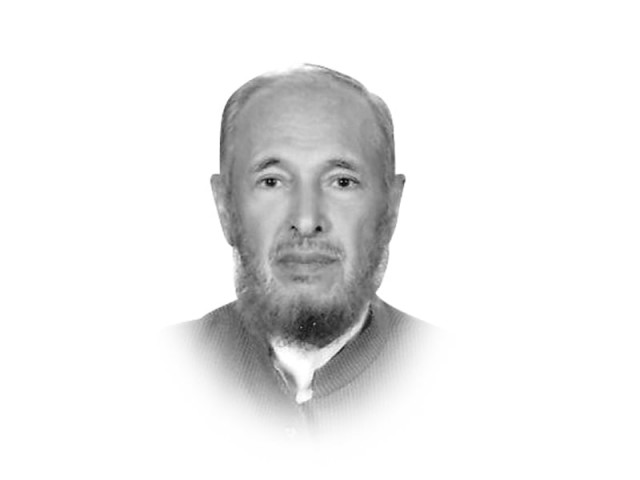The advance into Kunduz
If Afghan Taliban hold on to their occupation for some time, there is fear of defections from ranks of the Afghan Army

The writer has served as ambassador to Afghanistan and is a former interior secretary
The Afghan Taliban have entered and are in control of the northern Afghanistan city — the first time a major city has fallen to the group — at least for now.

Because this capture of a major and important city will be a major setback for the government in Kabul and President Ashraf Ghani, the regime will be making a very concerted effort to drive out the Taliban from Kunduz. They might as well succeed because a besieged insurgent group would be heavily outnumbered in man-power, equipment and lethal firepower. But even if the Taliban are driven out of Kunduz, there would be grave implications for Kabul in the months to come.
Unfortunately for the Afghan government, the fall of Kunduz has come at a most inopportune time when the regime is confronted with new emerging challenges. There is the growing menace of the Islamic State (IS), which is making inroads into some provinces, largely on the back of substantial monetary inducements that the extremist group offers to the new converts to its radical ideology and ways. Just days ago, on September 26-27, it targeted government forces in the eastern Nangarhar province, inflicting casualties and sparking fears of a new wave of deadly confrontation.
Then there is the worsening security situation across Afghanistan. The lower house of parliament has summoned the country’s interior minister and other officials to explain the reasons for what is widely seen as an inadequate response to the ever-increasing number of cases of lawlessness.
As if that is not enough, there is what appears to be a huge exodus of people — largely unemployed Afghan youth trying to leave the country and join the Middle Eastern migrants entering Europe for jobs and more security.
Coming in the backdrop of such ominous developments, the regime in Kabul is shaken and unnerved. The prospect of more towns falling in a manner similar to Kunduz to the Afghan Taliban is indeed very frightening.
If the Afghan Taliban hold on to their occupation for some time, there is fear of defections from the ranks of the Afghan Army. That could snowball into a bigger and even more dangerous movement of soldiers leaving their ranks from both the military and the police. More government functionaries could establish links with the resistance movement of the Afghan Taliban — leading to the gradual collapse of the administrative machinery, thus paralysing the country.
One year into his presidency, Mr Ghani is facing a crisis of formidable proportions. On the other hand, the newly installed chief of the Afghan Taliban, Akhtar Mansoor already has a major victory under his belt, which he would use to bolster not only his standing, but also to overcome any remaining resistance to his authority within the insurgent group.
The Taliban and their chief would now adopt a more robust stance in the negotiations with the Afghan government — if at all they are resumed any time soon. For the moment, the chances of the talks resuming and a consensus on the roadmap to resolution of conflicts remains remote.
Whether the worsening security environment would force yet another delay in the withdrawal of foreign forces — scheduled for the end of next year — remains to be seen. What is certain is that US President Barack Obama would not want to leave Afghanistan in a mess as he prepares to wind up his tenure at the end of 2016. But the alternatives that confront him are equally daunting. Will it be wise to extend the stay of most US troops indefinitely and risk involvement in a perpetual conflict that would diminish American prestige and credentials? Or is it wiser to consider yet another decisive military action to weaken, demoralise and eliminate the Afghan Taliban. This will plunge the whole country into a deadly cycle of violence and shatter the American vision of rehabilitating a nation that has been torn asunder by the invasion in 2001.
The only sound, prudent option that could work is moving towards the goal of bringing the Afghan Taliban into the mainstream on terms that are compatible with the aspirations of the broad majority of the people of the war-torn country. For that to happen, insistence on recognising or accepting the institutions — as they are constituted in the country at the moment — would have to be given up. All stakeholders must remember that Afghanistan, the country, is more important than its parliament or government. This has to be acknowledged as a first step towards meaningful negotiations. This, in turn, could lead to a situation that could pave the way for a breakthrough.
In times like these, visionary statesmen can play a positive role. Former president Hamid Karzai could play a historic role in negotiating the terms which could bring the Afghan Taliban into the mainstream of the country’s politics. It must be acknowledged that the fighting is not about a few offices or some positions in government. It is about building systems that are compatible with the philosophy and struggle of those who have been waging the struggle to end foreign occupation as well as recognition of the fact that the government in Kabul has been elected by the people and has certain legitimacy. These two concepts have to be reconciled to create a framework for a peace settlement.
Published in The Express Tribune, October 3rd, 2015.
Like Opinion & Editorial on Facebook, follow @ETOpEd on Twitter to receive all updates on all our daily pieces.














COMMENTS
Comments are moderated and generally will be posted if they are on-topic and not abusive.
For more information, please see our Comments FAQ